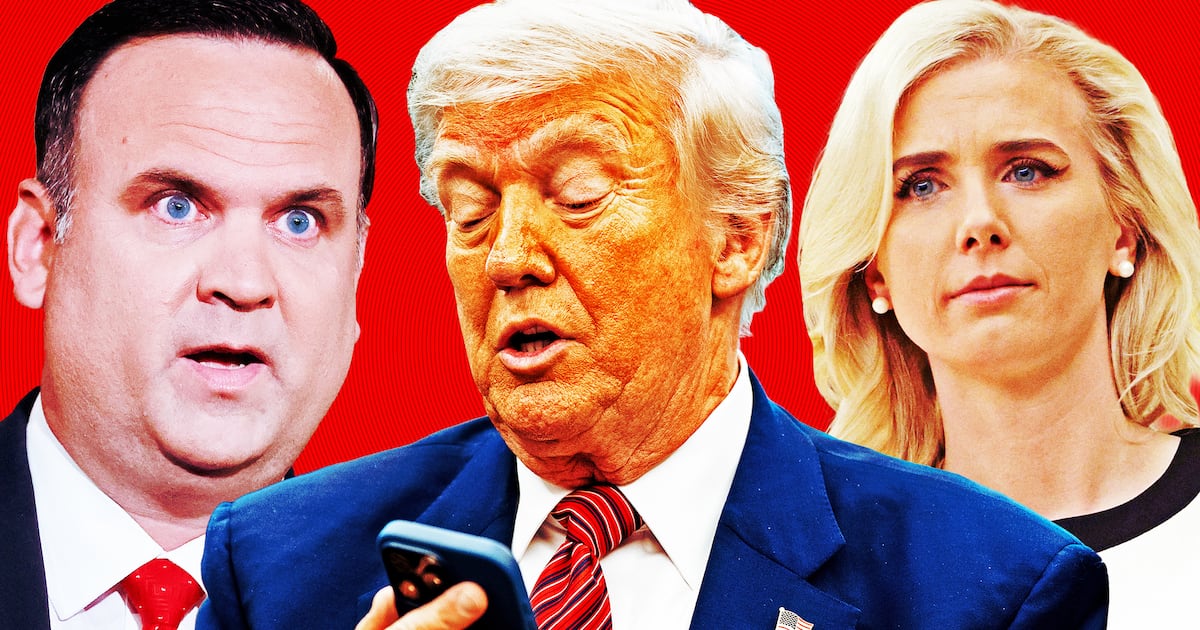
Before Goldman Sachs was lampooned in the media, famously labeled by Rolling Stone magazine the evil “vampire squid,” and became the symbol on Main Street for all that was wrong on Wall Street, the big firm was already the most hated investment bank among investment bankers.
But now Goldman has even bigger problems, having been accused by the SEC of securities fraud. The SEC claims that Goldman sold a complex type of mortgage bond, known as a collateralized debt obligation, to investors without alerting them that hedge-fund manager John Paulson had selected the same bonds as likely to default.
This case represents… a road map into how a firm that was once considered the gold standard of Wall Street behaves like a two-bit thug when money is on the line.
Paulson made money because he was actually shorting the bonds (a trade that becomes profitable when prices decline), as Goldman was selling the bonds to investors, suggesting they buy them because the housing market would continue to boom.
These allegations only further the case for Goldman’s dismal reputation on the Street. The reasons for that reputation are many: Goldman executives populated senior positions in government, particularly the Treasury Department, where they made decisions that always seemed to benefit the company (getting bailed out by ex-Goldman CEO Hank Paulson when he was Treasury Secretary, while Lehman roasted). The firm used sharp elbows to crowd out competitors and win big investment banking deals. In one outrageous example, Goldman pushed the ethical boundaries by serving as the investment banker on a deal in which it sold its own electronic trading platform to the NYSE, which was headed by former senior Goldman executive.
But the biggest complaint against Goldman involved how the firm treated its customers, namely the large institutional investors that buy and sell stocks and use Goldman’s trading ideas on a daily basis. The rap against Goldman is that it basically screws customers every chance it gets, stealing ideas, betting against their trading positions, and in general just being jerks so it can inflate its already bloated bottom line.
It was a charge Goldman has for years vigorously denied, while daring reporters (like myself) to come up with conclusive proof that it went on. In the past year, as the Goldman-screws-its-clients chorus has grown louder, the firm has taken extraordinary steps to refute the charge.
• Big Fat Story: Can Goldman’s Chief Survive?• Alan M. Dershowitz: The Fallacy of Fraud• Roger Martin: Goldman’s Shell GameGoldman CEO Lloyd Blankfein recently took pains in the firm’s widely read annual shareholder letter to state explicitly that Goldman plays fair—or in his words, “did not bet against its clients” particularly in 2007, when it was possibly the only big firm that made money by shorting the bonds tied to the housing market (i.e. betting it would decline), even as it sold the same type of mortgage bonds to investors, who eventually lost billions as the housing collapse turned into the broader collapse of the entire financial system.
Well, thanks to the Securities and Exchange Commission we now have something close to conclusive proof. I don’t know if the charges in the SEC complaint filed today—which sent Goldman shares down more than 12 percent and the entire stock market down more than a 125 points—are proof positive that Goldman is scummier than any other firm. All of Wall Street, after all, knows how to play dirty.
But it does lend tremendous credibility to the long-held allegation that Goldman Sachs works not for its clients, but against them and only for itself. And if that notion sticks, the long-term impact on Goldman’s franchise will be far worse than being called a vampire squid, or the $1 billion in potential liabilities it faces if it loses the civil case filed Friday morning.
John Paulson is an interesting guy. He was one of a handful of hedge-fund managers who bet that the mortgage-bond market would decline beginning in late 2006, and he made billions from that bet. Here is where the SEC charges get interesting: Goldman allowed Paulson to help create the bond that Goldman later sold to its other clients, large institutional investors. Paulson made money on the investment—which allowed him to bet that housing prices would go down through a short position.
But the other investors took the opposite bet—that housing prices would remain vibrant, which eventually became a money loser. Now there’s no law against Paulson making money on the deal or the others losing money, but the SEC basically alleges that the game was rigged from the start without the investors having the faintest idea; Goldman created the bond with the help of Paulson, who put some of the most risky mortgages in the portfolio—mortgages that were most likely to default and tank the investment.
Again, the SEC’s problem with all of this is not that Paulson went to Goldman to create the bond (Paulson wasn’t charged) or even that Goldman sold to investors the very thing that Paulson was betting against. The SEC's problem with it is that Goldman didn’t tell investors about Paulson’s involvement. Remember, because he was short selling, Paulson had every incentive to pack the bonds with crummy mortgages that would later default, which they did. Had investors known Paulson was involved with creating the bond, they might have thought twice about buying it.
Goldman’s defense is that it somehow lost money on the whole sordid affair—implying that if they were really doing something wrong, they would have made money—and that the SEC’s case is completely unfounded in law and fact. This defense leaves out, of course, the fact that in 2007 Goldman also shorted the housing market like Paulson did, and that contributed to its massive earnings that year, not to mention Blankfein’s paycheck, which nearly reached $70 million.
Let’s just say for a moment that there is no securities law violation here. And let's assume for a moment that Goldman won't settle, which, if it hasn't, probably means the SEC wanted a lot of money for a settlement—enough to make the wronged investors whole again or something along those lines, which would mean Goldman would end up paying something like $1 billion. And let's say that the judge who gets this case throws it all out because Goldman deals with sophisticated investors who should know better. After all, these big pension funds and hedge funds all have the means to have done their due diligence on the mortgages imbedded in the bonds, and they could have seen the risk they presented.
Even if all of that is true, what this case represents (and it’s a pretty good read for an SEC legal document) is a clear and compelling road map into how a firm that was once considered the gold standard of Wall Street behaves like a two-bit thug when money is on the line.
And if that notion holds with its clients, Goldman Sachs has got bigger problems than a bunch of name-calling journalists.
Charlie Gasparino is a senior correspondent for Fox Business Network. He is a columnist for The Daily Beast and a frequent contributor to the New York Post, Forbes, and other publications. His new book about the financial crisis, The Sellout, was published by HarperBusiness.






